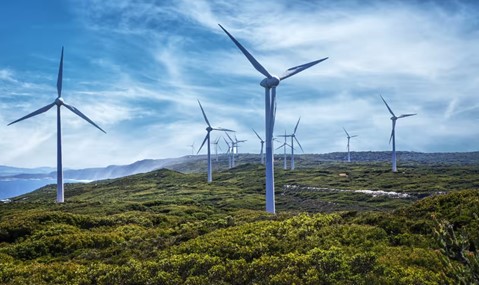
Australia May Postpone 2035 Climate Target Announcement Due to US Election Uncertainty
Australia might delay announcing its 2035 climate target until after the upcoming US presidential election, with some experts urging against a prolonged postponement. The delay is partly influenced by uncertainties surrounding the US election's outcome, which could impact global climate policy and influence Australia's decision.
Target Delays and Global Influence
The Paris Agreement requires countries to submit their 2035 emissions reduction targets before the UN climate summit in Belém, Brazil, in November 2025. Major investors are open to delays if they lead to more scientifically ambitious targets. The Investor Group on Climate Change has suggested that Australia should aim for a significant reduction in emissions—between 65% and 75% below 2005 levels by 2035—based on Climate Change Authority recommendations.
The US presidential election results could shape global climate policy. A potential Kamala Harris presidency might push for strong climate targets, while a Donald Trump administration could lead to a climate leadership vacuum if Trump withdraws from the Paris Agreement again.
Political and Economic Implications
Matt Kean, the new chair of the Climate Change Authority, emphasized that geopolitical factors, including the US election results, would influence Australia's 2035 target. He highlighted the need for comprehensive evidence before finalizing the target.
Tennant Reed from the Australian Industry Group noted that while a short delay might be justifiable, prompt action is crucial to ensure effective climate mitigation between 2030 and 2035. He warned that extended delays could limit achievable targets.
Global Context and EU Challenges
The EU's progress on 2035 targets has also been slow, with leadership changes impacting climate policy timelines. The EU presidency will soon shift from Hungary to Poland and then Denmark. Meanwhile, China's upcoming 2035 target announcement and updates on its 2030 goals will be crucial in determining global progress toward limiting warming to well below 2°C.
Australia's current targets include a 43% reduction by 2030 and net zero by 2050. The Coalition has indicated it might scrap the 43% target if it wins the next election, which would conflict with the Paris Agreement's progression principle.
Barriers and Recommendations
A recent report by the Climate Change Authority identified six barriers to achieving net zero in Australia:
- Reluctance to pay a "green premium" for goods.
- Slow and complex development approval processes.
- Limited social license for new technologies.
- Supply chain constraints.
- Workforce shortages.
- Data gaps.
The report recommends that Australia focus on overcoming these challenges to meet its climate commitments and secure energy supplies through renewable energy, particularly as coal plants are phased out.